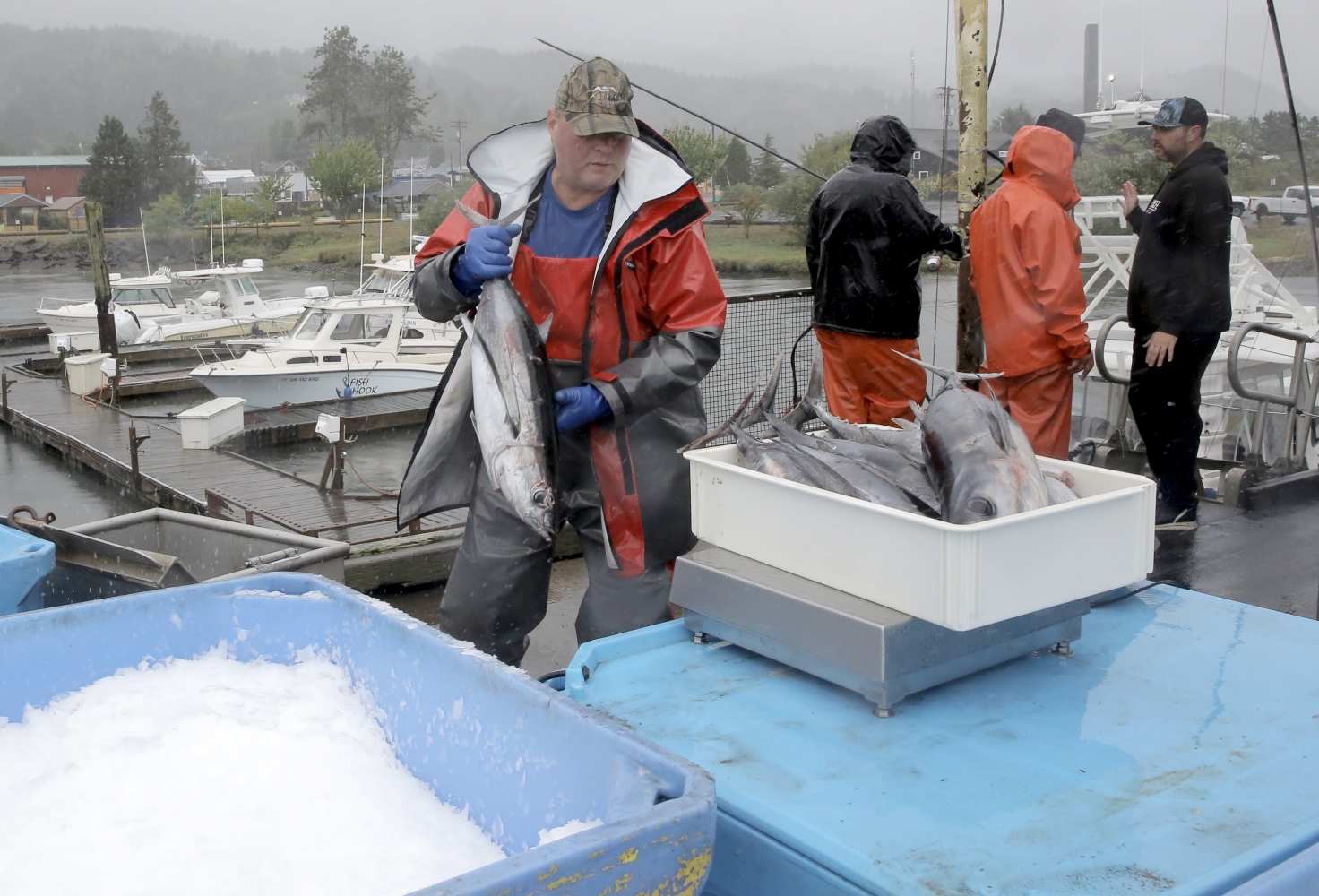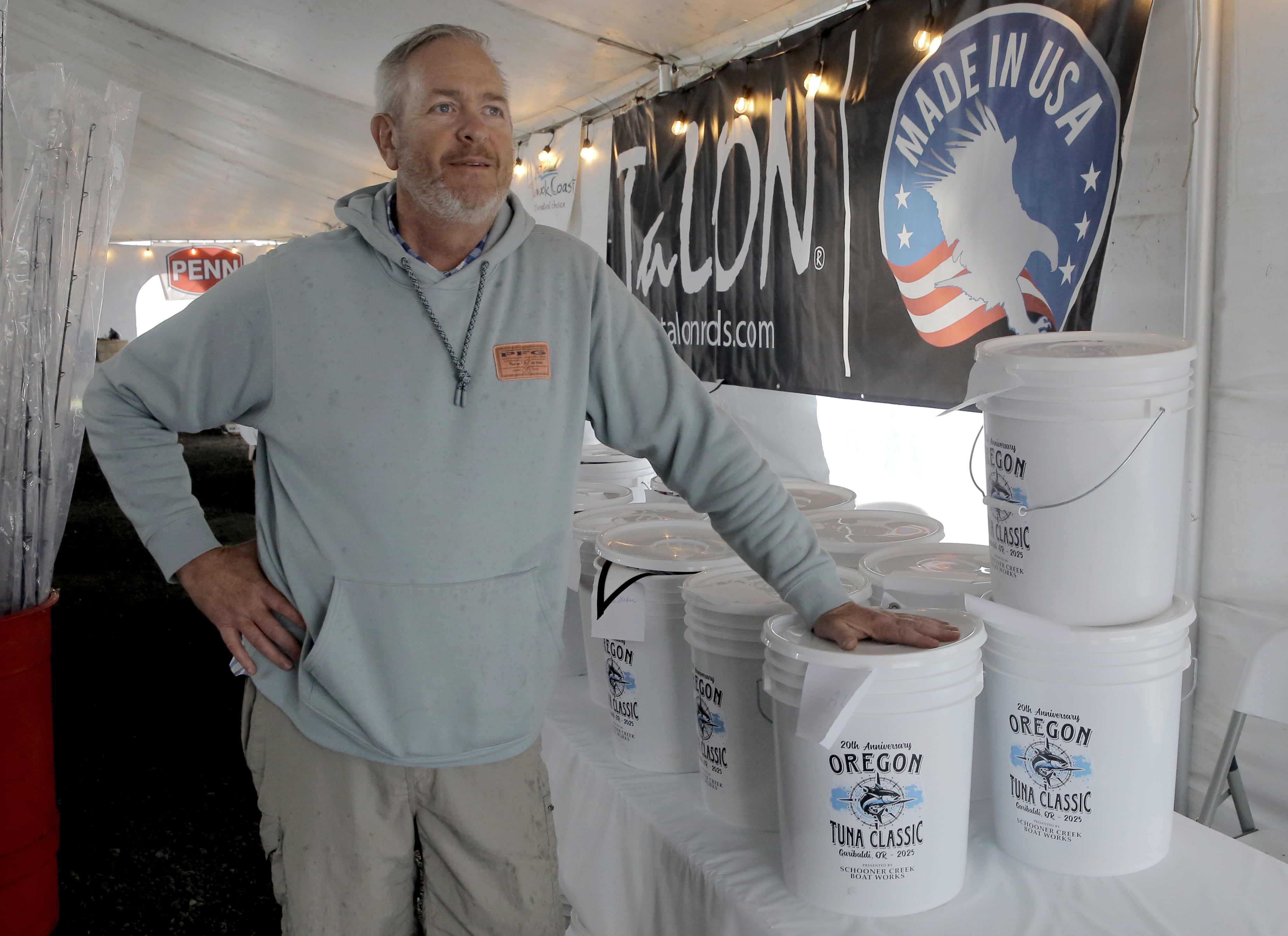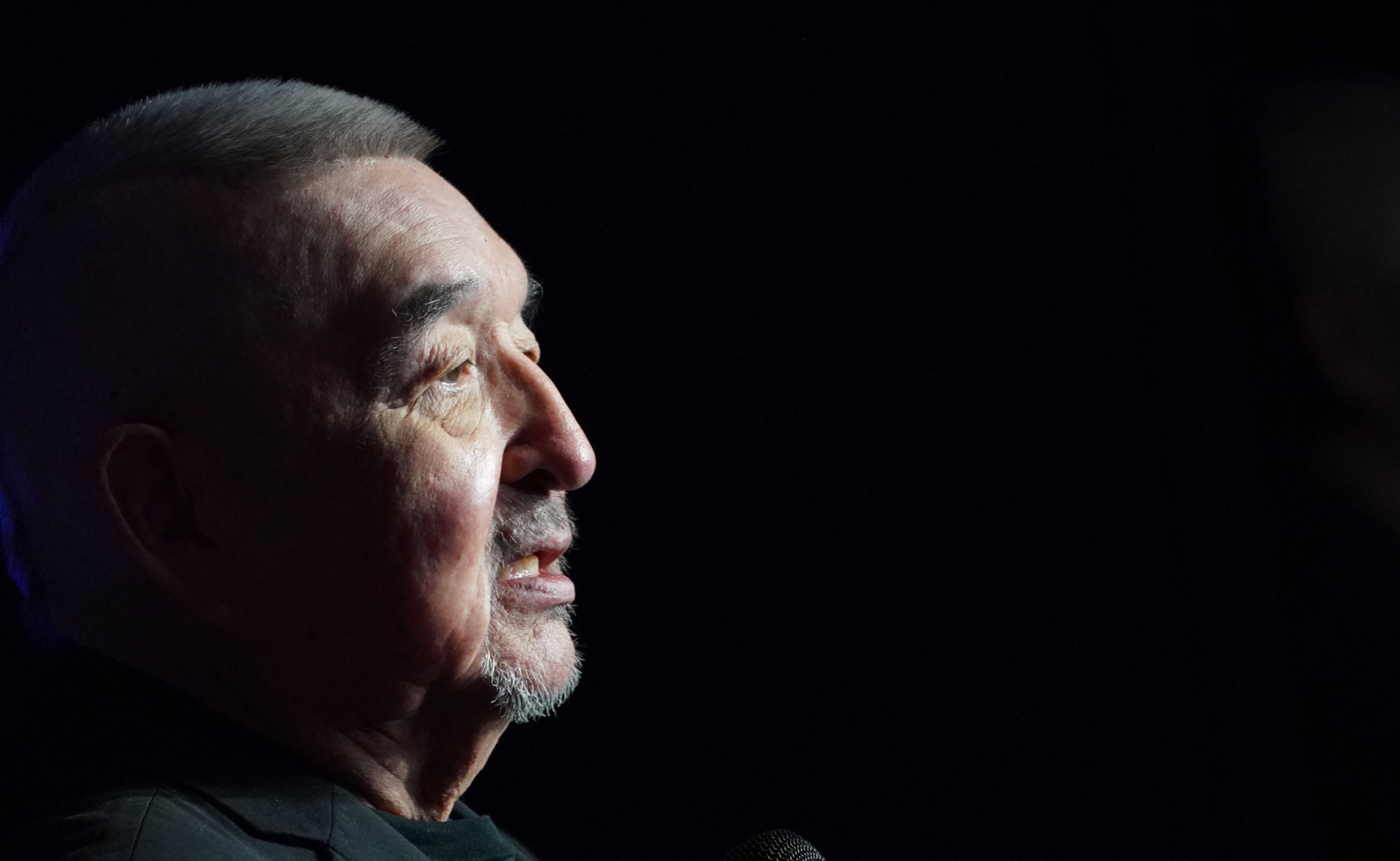

Published on: 08/31/2025
This news was posted by Oregon Today News
Description

The annual two-day Oregon Tuna Classic starts early, at 4 a.m. Crews get up, put food and ice on their boats, fuel up, then head out to the mouth of Tillamook Bay for a 6 a.m. shotgun start.
“We all leave at the exact same moment,” said John Yates, who runs a Portland construction company during the week.
But on Day 1 of the Tuna Classic, he was on his boat with friends, dressed head-to-toe in a reflective white fishing bib, taking part in the competition.
“It was pretty rough out there. Seas were steep, so it made it difficult to trawl,” he said after spending hours battling 40 mph winds just to get to the fishing grounds. “Lines were getting blown all over the place.”

Every summer, 20 to 50 miles off the Oregon Coast, there’s a stunning run of albacore tuna. The big, silvery fish migrate from the waters off Japan to this side of the Pacific. They’re looking for the sardines and squid that live off the nutrients Oregon’s coastal currents sweep up off the sea floor.
It’s an angler’s paradise, which is why Garibaldi has hosted the Oregon Tuna Classic for the last 20 years.
“I’m looking for water temperature breaks,” Yates said. “I’m looking for the water to change color, I’m looking for any signs of life, birds, whales.”
Those signs can look like a feeding frenzy on the water. Anglers will stop and drop their jigs into the deep.
When things are just right, the tuna fight like hell and one fish after another bounces onto the deck.

“Seems like you can’t stop them from jumping in,” said sports fisherman Doug Zickman. “Lines get crossed and it’s just mayhem for that time period.”
But just as quickly as it starts, the frenzy will die away. There’s no time to waste, though; teams get their trawling lines right back into the water because there’s a 4 p.m. deadline for boats to return for the official weigh-in.
“It’s a long day,” said Yates.
On the Garibaldi docks, a crane lifts a metal bucket full of tuna onto a scale at the Captain’s Corner, a fish processing plant that doubles as a gas station, a restaurant and a community meeting house.
Older men in bright orange fishing gear count and weigh the fish, while youngsters shovel ice into big blue tubs to keep the Albacore fresh.

Laurina Eshelman sits inside a room-sized refrigerator.
“So my job today is to put in the computer how big the fish is and how many fish they’re donating,” she said.
The tally is supposed to be a secret until the dinner and auction that is held at the end of the two-day competition.
“But I’m sure they’re talking about it already,” Eshelman smiled. “Trying to beat each other.”
Back on the docks, Jason Strasser searches each boat as it returns to make sure nobody is secretly storing fish for the next day.
“It’s all bragging rights for them,” he laughs. “It’s a big, fun tournament and it’s why I love the Oregon Tuna Classic.”
Like everyone at the Oregon Tuna Classic, Eshelman and Strasser are volunteering their time. The tournament isn’t just about the biggest fish. It’s a fundraiser for the Oregon Food Bank and Ducks Unlimited.
“It all started because of a friendship,” said John Stanfield, the regional director of Ducks Unlimited.
“A group of guys, going out catching a lot of fish. After they’d fed all their neighbors, friends and family, they thought, ‘Well, we still love to go out and catch fish. What will we do with these fish?’ And so they came up with the idea of creating this tournament to benefit the community, by providing really good food to the food pantries up and down the north coast.”

In the event’s early days, the friends would pay $3 a tin to can the tuna. But gradually the event grew, and now processors like Pacific Seafood cut and package the fish for free.
This year, the event yielded 950 fish, or about 14,000 pounds.
The event is a unique slice of Oregon coastal life. And while a lot of people had a great time this year, the rain made it a bit of a washout. Of the 48 boats registered this year, only 29 landed fish.
Team “Lewis and Clark” won the biggest fish contest, with a tuna weighing over 24 pounds. Their success means the team is now qualified for the world offshore fishing championship in Costa Rica.
Meanwhile, the National Oceanic and Atmospheric Administration says the Oregon Tuna Classic albacore run is both sustainable and responsibly harvested. That’s largely because tuna are caught on lines instead of in nets, meaning few other species are accidentally caught.

News Source : https://www.opb.org/article/2025/08/31/oregon-tuna-classic-fishing-event-tillamook-bay-boat-competition/
Other Related News
09/02/2025
At 119 pm on Tuesday the National Weather Service issued a heat advisory in effect until 8...
09/02/2025
At 119 pm on Tuesday the National Weather Service issued an extreme heat warning in effect...
09/02/2025
Pacific Power said that the outage lasted from 315 am until 1021 pm
09/02/2025
One of the most respected Indigenous actors of his generation Graham Greene appeared in mo...
09/02/2025










